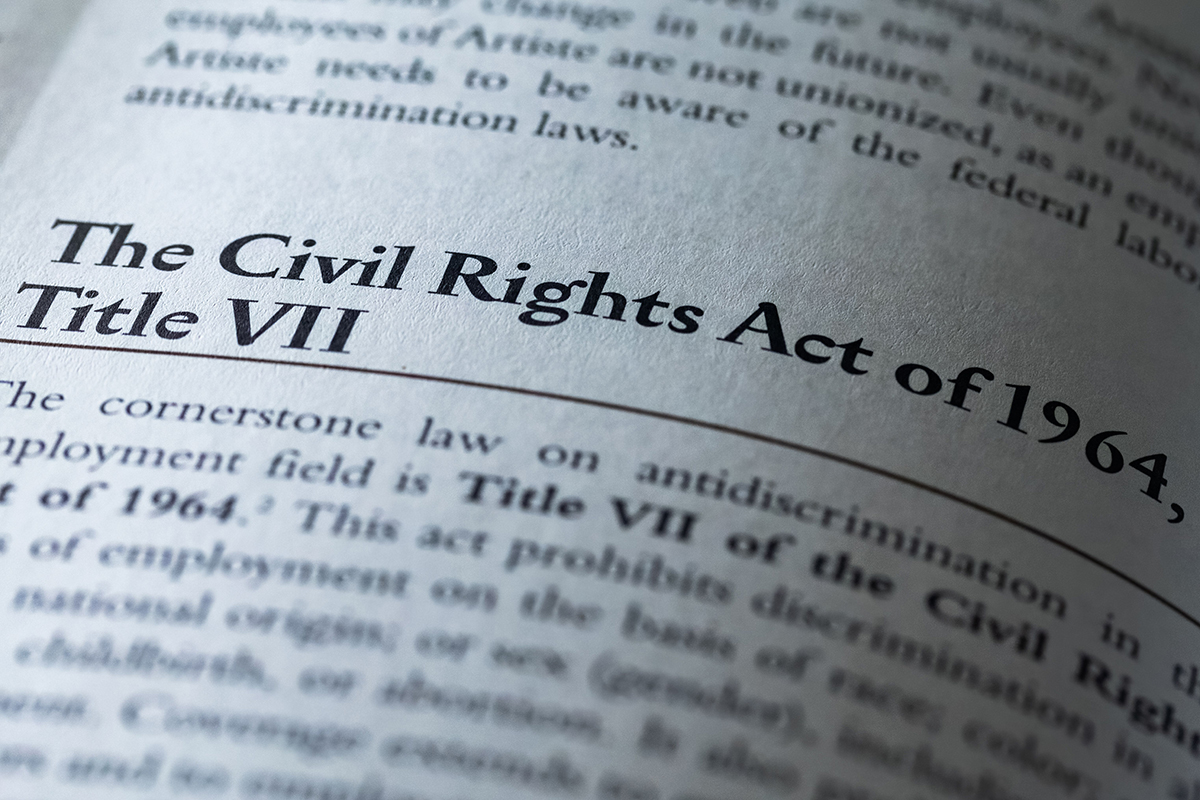$5.1 Million for Religious Discrimination

Can an employer be justified in terminating an employee for violating the employer’s policies and at the same be liable for religious discrimination under Title VII? Southwest Airlines recently learned that the answer is, “yes”, and faces a $5.1 million verdict in its former employee’s favor.
Southwest Airlines terminated flight attendant Charlene Carter in 2017 after 20 years of service, determining that Carter’s behavior violated Southwest’s Social Media Policy, Workplace Bullying and Hazing Policy, and Harassment Policy. Carter filed a grievance against Southwest pursuant to her Union’s Collective Bargaining Agreement. The grievance was ultimately decided by an arbitrator who issued an award finding that Southwest had just cause to terminate Carter.
As recited in the Arbitration Award, Carter sent a co-worker and local Union President, Audrey Stone, “unsolicited private Facebook messages containing graphic images of aborted fetuses”. Carter also posted those same videos to her unrestricted public Facebook account that clearly identified Carter as an employee of Southwest. Carter also accused Stone “of supporting murder” because Stone participated in the 2017 Women’s March on Washington, DC. Carter admitted to making the posts and sending the messages, and admitted that the images were graphic, but argued that her beliefs compelled her to send the messages. On this evidence, the Arbitrator found that Carter violated Southwest’s Policies and that her termination was justified.
Subsequently, Carter filed suit against Southwest in federal court, Northern District of Texas, Dallas Division, claiming her termination constituted proscribed religious discrimination. At trial, Southwest sought to admit evidence concerning the Arbitration hearing and award, but the court refused to admit either into evidence. The jury found for Carter, awarding her $5.1 million in damages and determining that her termination violated Carter’s right to freedom of protected speech about religion.
Title VII of the 1964 Civil Rights Act, as amended, protects employees and job applicants from employment discrimination based on race, color, religion, sex and national origin. Title VII protection covers the full spectrum of employment decisions, including recruitment, selections, terminations, and other decisions concerning terms and conditions of employment. But Title VII also requires employers to reasonably accommodate the religious practices of an employee or prospective employee, unless doing so would create an “undue hardship” on the employer.
While the Arbitrator may have found the termination of Carter justified per Southwest’s Policies, a jury found that her termination was in violation of Title VII. The difficult lesson for Southwest and all employers from these seemingly conflicting findings is that policies involving employees’ behaviors and conduct have to be evaluated and considered in light of both state and federal statues, including Title VII.
Generally, where workers articulate a need for accommodation of their religious beliefs or practices in the workplace, the employer is required to accommodate them. However, employers are not required to make accommodations that would cause them undue hardship. In its basic form, accommodation that would require more than minimal cost to the employer, considering its size and resources, is considered an undue hardship in the context of accommodating religious beliefs and practices.
For an employer to determine if a practice or belief is “religious”, the employer may have to ask the employee about their beliefs, and determine whether those beliefs are “religious” and sincerely held. This can quickly lead the employer to sensitive and tricky waters. As best practice, an employer should investigate an employee’s religious beliefs in a neutral, objective and fair way, using a pre-determined set of questions that have been fully reviewed for its objectivity. Since “religious beliefs” can also include a belief in a moral or ethical behavior and what is considered right or wrong, employers cannot just consider the traditional “religions”, but must also examine an employee’s reasons for the beliefs seeking accommodation.
The attorneys in our Austin and Dallas offices are available to answer any questions you may have. Please contact us at info@gstexlaw.com.
Legal Disclaimers
This blog is made available by Gerstle Snelson, LLP for educational purposes and to provide general information about the law, only. Neither this document nor the information contained in it is intended to constitute legal advice on any specific matter or of a general nature. Use of the blog does not create an attorney-client relationship with Gerstle Snelson, LLP where one does not already exist with the firm. This blog should not be used a substitute for competent legal advice from a licensed attorney.
©Gerstle Snelson, LLP 2023. All rights reserved. Any unauthorized reprint or use of this material is prohibited. No part of this blog may be reproduced or transmitted in any form or by any means, electronic or mechanical, including photocopying, recording, or by any information storage or retrieval system without the express written permission of Gerstle Snelson, LLP.

